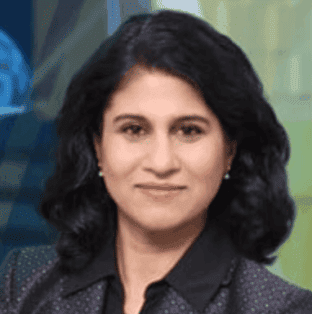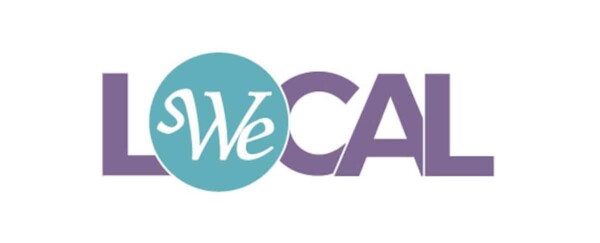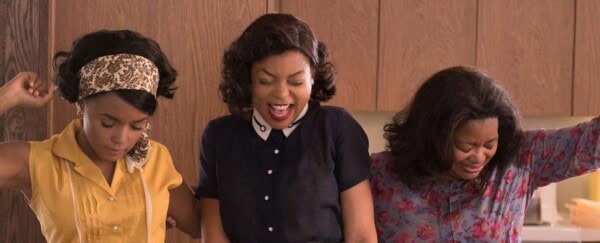Episode 92: Jayshree Seth’s Perspective on Current Crises and the Path Forward
Those of you who attended WE19 in Anaheim, California, last November, will probably be familiar with the guest of this SWE Diverse episode—Jayshree Seth. Jayshree gave the celebrate SWE closing keynote at WE19, inspiring and entertaining the audience with her personal story, relatable anecdotes and charismatic personality.

Jayshree earned her chemical engineering degree in India and joined 3M after obtaining her masters and PhD in the US. She currently holds two roles at 3M that allow her to combine her technical expertise and creativity with her love of science.
As a corporate scientist, she works with other engineers and scientists to break down complex problems and find solutions that stick. As the company’s chief science advocate, she hopes to help people of all ages around the world, learn to appreciate science in their daily lives.
In this Diverse episode, host Karen Horting—CEO and executive director of SWE—speaks with Jayshree about her perspectives on the issues that are dominating the news and our lives: the global COVID-19 pandemic and the topic of systemic racism in the US.
“Just like the coronavirus COVID-19, racism too seems to have infected many; it spreads uncontrollably. And it’s sad that it too often kills, especially those with skin color as a comorbidity, if you will. So the intersection of the two issues that have really convulsed our world also served to bring the impact of racism into focus. And the parallels were just uncanny except COVID-19—we’ll get a vaccine. Racism is the virus that will continue to plague America. There’s no vaccine that will eventually eradicate it.”
– Jayshree Seth
Podcast Transcript:
Karen Horting:
Hi, I’m Karen Horting, executive director and CEO of the Society of Women Engineers. Welcome to SWE Diverse podcast series. Please remember to add this podcast to your iTunes and like or follow us on social media. Please visit swe.org for more details. For today’s show, those of you who attended WE19 in Anaheim, California, last November, will probably be familiar with this episode’s guest. Jayshree Seth gave the celebrate SWE closing keynote at WE19, inspiring and entertaining the audience with her personal story, relatable anecdotes, charismatic personality, and if you remember a little bit of rap. If you missed it, you can find Jayshree’s closing keynote on the altogether.swe.org homepage in our video section. Jayshree earned her chemical engineering degree in India and joined 3M after obtaining her masters and PhD in the US. She currently holds two roles at 3M that allow her to combine her technical expertise and creativity with her love of science.
Karen Horting:
As a corporate scientist, she works with other engineers and scientists to break down complex problems and find solutions that stick. As the company’s chief science advocate, she hopes to help people of all ages around the world, learn to appreciate science in their daily lives. And I have to say at my house, she is a bit of a rock star because every time I see one of her commercials come on the television, I squeal just a little bit. And even my husband now is very familiar with her work. But today she’s here to provide her perspective on the issues that are dominating the news and our lives, the global COVID-19 pandemic and the topic of systemic racism in the US. Thank you so much for joining us today Jayshree.
Jayshree Seth:
Thank you for having me, Karen.
Karen Horting:
It is a pleasure. So let me start with COVID-19. This global pandemic has affected nearly everyone on the planet in some regard, have you and your work been impacted?
Jayshree Seth:
I was just thinking about it, last time we were together there was so much hugging and high fiving at the SWE19 closing and how the world around us has changed since then. So first the air hug, and namaste to you and all your listeners.
Karen Horting:
Thank you.
Jayshree Seth:
To answer your question. I must say I consider myself fortunate. I’m thankful that my family is fine, we’re all safe. And for work at 3M, I was able to transition to working remotely. As you know 3M has been front and center in the fight against COVID-19. We’re one of the largest manufacturers of N95 masks. I’m not directly related with that business at 3M, but we have many colleagues who were working around the clock during the height of the crisis. My lab work of course has been on hold because I’m working from home. But as you mentioned, I have this additional role of 3M chief science advocate. And in that role, I travel the world for discussions and speaking engagements advocating for science, but I was grounded. So now what? We decided to just launch a video series called science at home and in this series, 3M scientists like myself, we do fun experiments, right at home, using basic household materials, and we just demonstrate core scientific principles.
Jayshree Seth:
To help teachers, educators, parents, students who have to transition to distance learning. And that was over 55 million students in the US alone. So it was exciting to launch this series. We also have some guests scientists in that, like Miss America, who’s a biochemist, she conducted one of the experiments. So in fact, if any of the listeners have children or nephews or nieces and friends with kids in the age group of six to 12, check it out, it’s at 3m.com/scienceathome. It’s a free resource and a great one to use during summer break as well, to keep kids engaged and also help prevent that summer slide. So although work was impacted, honestly, we try to make the most of the current circumstances.
Karen Horting:
Yeah. I love the science at home because I think it’s so important to make science accessible for everyone. And whether you are interested in pursuing science as a career, or just to be a science, literate citizen-
Jayshree Seth:
Exactly.
Karen Horting:
As we’re seeing in these challenging times is so important. So let me transition here a little bit. You recently wrote an article about VUCA, which is a term borrowed from the military, but often used to describe business environments as well. And something I first learned about at our conference in Berlin last year. So tell us more about VUCA and how it applies to the current circumstances of the pandemic.
Jayshree Seth:
Yeah. VUCA, spelled V-U-C-A is a term that military uses and as you said, it has been often used to describe the business environment as well. Business in a world that is constantly changing and frequently unfolding in unexpected ways. So just like in a military situation, it makes it volatile. That’s the V in VUCA. It is also difficult to anticipate or predict events through past experiences. So most situations and scenarios in business, are fairly uncertain that’s the U. And most of these challenges are multifaceted, they are interlinked and that makes them complex, that’s the C. And oftentimes things are contradictory they’re paradoxical, which adds to the ambiguity, which is the A. But the pandemic, I believe has slapped a new lens on our VUCA world as we knew it. I mean, if you look back on how just the last few months of 2020 have unfolded, COVID-19 honestly makes the VUCA world of yesterday look quite tame and manageable. The discussion of vulnerability has eclipsed any discussion of volatility, and its vulnerability not just of our health, but of communities and companies and countries that has been exposed.
Jayshree Seth:
It has also brought into focus the crucial connection between human health, the environment, the economy, and the vulnerability of virtually every sector, financial, healthcare, education, manufacturing, and the list just goes on. So it is difficult to overstate just how much has changed in such a short time and how much more will change as the year progresses. It has impacted the way we live, the way we work. So it’s truly unprecedented and it’s unprecedented how many times you actually see the word unprecedented used these days, because it’s exactly that. So uncertain has given way to unprecedented in the new VUCA, from my perspective. And complex has given way to contentious, there’s a debate about everything. Whether you look at my dinner table, or you look at the world stage and the debate of lives versus livelihoods ranges on right now, as we speak. And it seems as if all subjects are deemed controversial and instead of being commonly discussed, I feel everything is just being disputed, pitting people and putting ideologies against each other, it’s just contentious.
Jayshree Seth:
Especially since social media serves to amplify many of these issues, rampant misinformation during the pandemic, that’s amplified. Every action, the words, the abundant rhetoric, everything gets amplified. And that constantly adds to challenges for individuals, for leaders, for corporations and organizations. And honestly, VUCA was hard enough, but this new VUCA world makes it even harder to navigate successfully because it’s about vulnerability, it’s unprecedented, it’s contentious and it’s all amplified. So that’s my perspective on it Karen. And I think you, and many of our listeners will agree that this is just so different.
Karen Horting:
Yeah. I would say that, I think the word for 2020 will be unprecedented. And I think as you said, VUCA in the past this year is VUCA on steroids.
Jayshree Seth:
Seriously.
Karen Horting:
Like you said, everything is contentious, everything is debated, the conspiracy theories, it’s just very challenging environment. So why have some entities been able to adjust, pivot or adapt more quickly to this new VUCA?
Jayshree Seth:
Yeah, I think about that a lot. And I think the entities are, let’s just say even individuals for that matter, who are able to adjust, pivot or adapt more quickly. And I think it’s because of strong leadership, it’s vision and it’s a culture and mindset of creativity and innovation. That’s what I think it boils down to really. 3M as an example, we were able to secure our supply chain, double the production of N95 masks, establish leave policies and robust protocols to ensure that the employees were supported and safe. Our product was redirected to where it is needed most and this was done by working cooperatively with government and organizations. And we also collaborated with other companies to provide respite solutions, and at the same time fighting price scouting and fraud.
Jayshree Seth:
And in addition, our CEO, Mike Roman announced a $20 million donation to support healthcare workers, COVID-19 research and communities that were disproportionately impacted by the pandemic. So we were able to navigate the new VUCA successfully and it’s all because, I believe we held to our values, our commitment to innovation and that vision of improving lives. And I think because a lot of the CEOs signed on to that much needed shift from shareholder value to stakeholder capitalism last year, now is the time to live this up. We are all part of the legacy of shared prosperity and sustainability for both business and society. And that heightens the focus on what is needed in such crisis. You need authentic compassion for employees, care for customers and suppliers, concern for society and sustainability. So I believe innovation, which is directed primarily towards significance in the need of the hour, during this VUCA on steroids, like you said, frozen in time, prolonged stage that’s what’s needed, a significance, that focus.
Jayshree Seth:
And any entity or person or collective group that continues to focus on traditional metrics, I believe will be blindsided. Because this quote, unprecedented time calls for an unprecedented attention on what is significant right now. And this is not just for big corporations. We all have to think that way with a growth mindset. What is it that I can do individually? And what can we do collectively? I, in fact, quote in my article that instead of success, significance should be the goal, significance that underscores customers, communities, employees, suppliers, and shareholders. And I think that spells success, actually it spells success. Significance, underscores SU, customers, community, CC employees, suppliers, and shareholders, and that’s what’s needed. And I’m assuming many of the listeners today are women and whether you’re just starting out or mid career or leaders in your organization, this is truly exciting because this contextual prospect of caring for multiple stakeholders, doesn’t scare you.
Jayshree Seth:
There is research out there that young girls start looking for context and purpose and inspiration for the making the world a better place at a very young age. I believe that some of you may be wondering how we got to this point with that much focus on shareholder value that disregarded the rest of the stakeholders and the planet and how we just focused on that one thing. And I also believe that focusing on many things and balancing different elements, it may also just work to our evolutionary strength. So honestly, even if you don’t think it does, I say, go ahead, aim for significance and claim your success. That’s the path forward.
Karen Horting:
Yeah. Well, I love when you mentioned culture and values, because I think for women that is so important for them in terms of choosing and staying with an organization. And I think in times of crisis, sometimes those things can go out the window. But really when we stick to our values, when we maintain that positive culture, when we turn those challenges into opportunities, I think that’s when we start to thrive.
Jayshree Seth:
Exactly.
Karen Horting:
Well, let’s shift gears a little bit here and talk about the other issue that has really been thrust to the forefront here in the US, which is systemic racism. So you and many others have referred to racism as another type of virus. What makes you look at racism in this way?
Jayshree Seth:
Well, as we discussed this coronavirus, COVID-19 pandemic has impacted us all, right? I mean, it could be big ways and it could be small ways, but we’re all tuned in watching the news and the virus is constantly on our minds and you can clearly see the disproportionate impact of this virus based on your race in this public health crisis. And then you see the string of events, including the one in my backyard right here in Minneapolis, that just really brings into heightened focus, the pervasive and out of control nature of racism. And just like the coronavirus COVID-19, racism too seems to have infected many, it spreads uncontrollably. And it’s sad that it too often kills, especially those with skin color as a comorbidity, if you will. So the intersection of the two issues that have really convulsed our world also served to bring the impact of racism into focus. And the parallels were just uncanny except COVID-19 we’ll get a vaccine, racism is the virus that will continue to play this, a post virus America would nevertheless remain sick someone said. There’s no vaccine that will eventually eradicate it.
Jayshree Seth:
So we, all of us, I think, have to collectively figure out how to purge this insidious virus, which has plagued our system for centuries.
Karen Horting:
Yeah. It’s like we have to figure out how to be that vaccine. So can you share some personal insights into the issue of racism and maybe how it’s impacted you?
Jayshree Seth:
Well, we just drew parallels, right? And just like coronavirus, this racism virus has impacted us all in different ways. For me, I have to admit it has been an awakening of sorts. I did not grow up here, I came to the US as a South Asian immigrant over 30 years ago. And of course I knew there was racism, but at some level I was perhaps oblivious to the incredibly systemic nature as it relates to the Black community. And it was this perfect storm in 2020 and just the way the events unfolded. On one side we had the pandemic and the disruption and the constant fear and the worry and the time and inclination to read and the exposure to the news. And here I was thinking, I’m good, I’ve always thought of myself as colorblind you know, but now I wonder if that actually had an element of self preservation. Maybe it was me saying, don’t look at me as an Indian woman with an accent who is very short, value me for what I bring to the table. I don’t know.
Jayshree Seth:
Maybe that’s why I’ve thought that belief in meritocracy and being colorblind was actually being fair. But I talked about the dinner table discussions and debates, I owe it to my kids honestly, I call them kids, but they’re freshly minted, young adults, they’re home with us due to the pandemic. They educated me on the folly and the danger of colorblind mentality. Mommy, don’t you get it, if you claim to care for equality, you cannot be blind to inequality. You cannot ignore the headwinds and tailwinds that people experience and how that ends up shaping the trajectory of their lives, their careers, and completely changes their narrative. So that made me think, and all these discussions with family and friends, they were very instrumental in shaping my thinking that silence is actually being complicit. So after that I’ve been attacking it like an engineer, Karen. On a personal level, I feel the urgency of the moment and I’ve been educating myself on what is called structural or systemic or institutional racism. I’ve been reading a lot, reflecting, ruminating, and that has helped me to detect my own conditioning.
Jayshree Seth:
It has allowed me to reflect upon what I call my own pockets of privilege. And then I’m using a growth mindset to plan my action steps. And for me it isn’t how racism has impacted me, but on the way I’m almost thinking about is how I can impact racism.
Karen Horting:
I agree. And I think you bring up a really important point. And if there’s anything our listeners take away from this podcast, I would say it’s to educate yourself. Because I agree, especially for me, the fact that it happened in Minneapolis, just blindsided me if you will. Because I’ve been to Minneapolis many times, we certainly have a lot of partners there and the old notion of Minnesota nice comes to mind. And it just tells you that this is happening everywhere around us and that if we don’t educate ourselves and become part of the solution, then nothing will change. Because we-
Jayshree Seth:
Well said.
Karen Horting:
We are complicit then. So I think there’s nothing more important our listeners can do than do some research and educate yourself about what’s been happening for hundreds of years. So we talked a lot about VUCA with relation to COVID-19, but how can that be applied to the issue of systemic racism here in the US?
Jayshree Seth:
Yeah, so VUCA was on my mind as 2020 unfolded, it was just that 2020 gives itself to vision metaphor. So I was thinking about that a lot in the pandemic then slapped a new lens on our VUCA world, and then it became this viral VUCA. Well, and as I was looking into it, some, I found out that when VUCA was first applied to business environment, a strategy of VUCA 2.0 was suggested by Bill George, who also lives in Minneapolis, he’s a leading thinker and was the CEO of Medtronic in town. And he said that in order to deal with VUCA in business, business leaders need VUCA 2.0, which is vision, understanding, courage, and adaptability. So again, V-U-C-A. Now, with the exposed on slot this year of this intractable racism pandemic, I thought it’s perhaps time for VUCA 4.0, as we move forward. So in my view, we need to reflect upon our values as a nation, community, and at a very personal level. We need to educate ourselves on the trauma caused by this virus, we need to empathize and we need to stand in unity against it.
Jayshree Seth:
We need commitment to action, to just starting where we are using what we have, doing what we can and all of this begins only with acknowledgement of the problems. Silence is complicity, but we know speaking up is hard, it will be awkward, we will make mistakes, but we have to move forward mindful of what I call VUCA 4.0, which is values, unity, commitment, acknowledgement. And that’s how I’ve been thinking about it. In fact, at 3M, we have done exactly that, our CEO and chief diversity officer convened a virtual candid conversation right away after the murder of George Floyd. And we listened to diverse leaders across 3M share their perspectives, their personal experience, and also optimism that we will move to action, united in solidarity. Honestly, it was raw, it was emotional, but it was also inspirational and reinforced the commitment to become anti-racist.
Jayshree Seth:
So I really do believe that VUCA 4.0 can be a solution to this, examining our values, standing against it in unity, commitment to act, and first acknowledgement that this is happening and it is systemic and it is a problem and we can all be part of the solution, like you said.
Karen Horting:
Yeah. I love that VUCA 4.0, I’m going to be sharing that widely.
Jayshree Seth:
Thank you so much. I would love nothing more than to go viral, bad pun.
Karen Horting:
And I think also, for some of us, it’s uncomfortable to hear the stories and see the videos, but I was reminded of imagine how uncomfortable it is to be going through that every day of your life.
Jayshree Seth:
Exactly.
Karen Horting:
So we can’t just turn away, we do have to acknowledge what’s happening. And my last question here is something you touched on a little bit earlier, which is that thinking of ourselves as colorblind, but what can we all do to become stronger allies in the fight against racial injustice?
Jayshree Seth:
Yeah. And I’m the first one to admit that I thought it was a pretty fair philosophy to be colorblind. So that would be people like me and now we all know better. So we need to stand firmly in a position of anti-racism because neutrality kills, literally it kills. We have to listen, educate, reflect, and act, if we really want to be part of the change. And like you said, it’s time for us to get uncomfortable. So I’ve been doing a lot of reading and watching documentaries and essays and understanding the whole concept of structural racism and how deep it is. And thanks to many on social media who have contributed by curating detailed anti racism resources. My article has many links to it, check it out on LinkedIn, follow me, I hope to be writing more as I learn more.
Jayshree Seth:
I’ve been listening and learning and educating, and I’ve also gone through reflection on the part that I may have played knowingly or unknowingly. And I have started implementing my action plan. I started with simple things, I just looked up all the thought leaders that I follow, business leaders that I follow, and I took my color blind lenses off. And then I realized that I, myself, wasn’t following many Black thought leaders and it’s not possible that they don’t exist. So I took it upon myself to seek them out, I connected with them and I am actually amplifying their voices. And my systemic system didn’t lead me to them. So I can clearly see how the system may get stacked against them. So that was proof to me right away.
Jayshree Seth:
So that’s just an example of one of the things that I committed to doing, and it’s going to look different for different people, but it’s going to be uncomfortable. And people may even look at you funny, Oh, look at her, look at him, they’ve gone off the deep end, this issue is just going to blow over, but do we really want that? I think we need it to change. And I read somewhere and it really resonated with me and you just mentioned it as well, whatever we feel that discomfort that is small in comparison to the generational anguish that Black America has had to deal with. There you go. I mean, it puts it in perspective right there and the good news is that you will find that you’re not alone in this fight. Many have joined the fight to purge this virus. And science based research has shown that when majority groups stay quiet, they inadvertently license the oppression of marginalized groups. So in fact, those with power and privilege, actually have an easier time getting heard. I mean, it takes courage and heart to reflect on these issues and reflect upon them authentically.
Jayshree Seth:
And again, I would like to believe that women are uniquely qualified to do just that because I do believe we have a special relationship with authenticity. So we need to use our ordinary privilege, whatever it may be to stand up against injustice while making the world and ourselves better.
Karen Horting:
I think we also have the ability to collaborate. And that’s where I feel this collaboration and reaching across some of these boundaries and things is where women can step up and play.
Jayshree Seth:
Absolutely. And it’s that collective power that is needed. And now is the time to act when the issue is so clear and can be understood easily by curated reading that people have accumulated for us. And you can clearly see a theme emerging that it is actually so systemic and so deep and impacts generations. And I can also give you a STEM view if you will. We need all the diversity of thoughts and experience we can get in order to creatively solve problems. I mean, we have to unlock the secrets to a sustainable future and STEM professionals and academics have a huge influence on shaping the world, but they’re also impacted by the racism virus. So what I say-
Karen Horting:
I think of the National Academy’s Grand Challenges and wow, talk about some grand challenges for our world. We need all the diverse perspectives we can get.
Jayshree Seth:
Absolutely. And so, what I say is racism is indeed a virus and much like COVID-19, it spreads when its very existence is denied. So we have to call attention to it, trace and isolate the carriers, only then we can attempt that containment. And this virus, as we said, has no vaccine so it warrants strong antiviral measures to be cured. And the way I see it is do not mask it. Expose it within yourself in any system where you see it, promote social converging on this issue, personal and professional stance might be all the same now. And you must not wash hands off this matter because it impacts us all and that in my view is the only path forward.
Karen Horting:
Yeah. This is one virus where we don’t want to wash our hands, right?
Jayshree Seth:
We don’t want to wear a mask, we don’t want to socially distance and we can not wash our hands. So do not mask it, socially converge on this issue, and do not wash your hands of this matter. It impacts us all.
Karen Horting:
Yeah. We all need to have the courage to follow VUCA 4.0.
Jayshree Seth:
Well said.
Karen Horting:
Yep. Well, Jayshree thank you so much for taking the time to speak with us today about these very real and very important issues. As we mentioned, these conversations are never easy, but they need to be heard. And I just want to remind our listeners SWEE is taking actions for intentional inclusion very seriously. For the coming fiscal year, we are going to be naming two special directors to our board of directors who are Black. We are going to be assigning two board sponsors to each of the societies, 11 affinity groups. We are going to recognize and celebrate the accomplishments and contributions of these groups. We have two listening town halls coming up the week of July 13th to hear from members who identify as a person of color and their experiences within SWE, along with their expectations of SWE. And pending the outcomes of those town halls, we will identify ways to address those issues and the board will maintain ownership and accountability for our progress.
Jayshree Seth:
That is so wonderful, I commend you for this and applaud all the efforts. This is what it takes.
Karen Horting:
And more to come. So I’m Karen Horting for all of us at SWE, thank you for listening.
Related content:
- Join Us for WE20 — On-Site or at Home!
- VIDEO: Check Out Our Inspiring WE19 Keynotes!
- SWE’s Next Actions for Intentional Inclusion
- SWE Supports #ShutDownSTEM Movement
- Taking a Stand For Diversity and Inclusion
Author
-

SWE Blog provides up-to-date information and news about the Society and how our members are making a difference every day. You’ll find stories about SWE members, engineering, technology, and other STEM-related topics.






